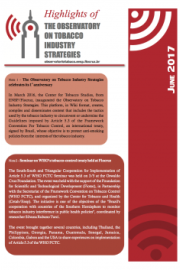Widespread uptake of vaping has signaled a sea change in the future of nicotine consumption. Vaping has grown in popularity over the past decade, in part propelled by innovations in vape pen design and nicotine flavoring. Teens and young adults have seen the biggest uptake in use of vape pens, which have superseded conventional cigarettes as the preferred modality of nicotine consumption. Relatively little is known, however, about the potential effects of chronic vaping on the respiratory system. Further, the role of vaping as a tool of smoking cessation and tobacco harm reduction remains controversial. The 2019 E-cigarette or Vaping Use-Associated Lung Injury (EVALI) outbreak highlighted the potential harms of vaping, and the consequences of long term use remain unknown. Here, we review the growing body of literature investigating the impacts of vaping on respiratory health. We review the clinical manifestations of vaping related lung injury, including the EVALI outbreak, as well as the effects of chronic vaping on respiratory health and covid-19 outcomes. We conclude that vaping is not without risk, and that further investigation is required to establish clear public policy guidance and regulation.
Objective: To measure the implementation of WHO Framework Convention on Tobacco Control (FCTC) Article 5.3 at country level using a new Tobacco Industry Interference Index and to report initial results using this index in seven Southeast Asian countries.
Methods: Score sheet based on WHO FCTC Article 5.3 Guidelines sent to correspondents in seven Southeast Asian countries, using a scoring system designed with the help of tobacco control experts and validated through focused group discussions.
Results: The seven countries ranked from the lowest level of interference to the highest are Brunei, Thailand, Lao PDR, Cambodia, Philippines, Malaysia and Indonesia. Countries that face high levels of unnecessary interaction with the tobacco industry also face high levels of tobacco industry influence in policy development. Most governments do not allow any tobacco industry representatives on their delegation to sessions of the Conference of the Parties or its subsidiary bodies nor accept their sponsorship for delegates, but most governments still accept or endorse offers of assistance from the tobacco industry in implementing tobacco control policies. Most governments also receive tobacco industry contributions (monetary or in kind) or endorse industry corporate social responsibility activities. Governments do not have a procedure for disclosing interactions with the tobacco industry, but Lao PDR, Philippines and Thailand have instituted measures to prevent or reduce industry interference.
Conclusions: This Tobacco Industry Interference Index, based on the WHO FCTC Article 5.3 Guidelines, is a useful advocacy tool for identifying both progress and gaps in national efforts at implementing WHO FCTC Article 5.3.
ASSUNTA, M.; DOROTHEO, E. U. SEATCA Tobacco Industry Interference Index: a tool for measuring implementation of WHO Framework Convention on Tobacco Control Article 5.3. Tobacco Control, Reino Unido, v. 25, n. 3, p. 313–318, maio 2016.

Highlights with topics considered prominent in order to promote debates and decision-making in the scope of tobacco control. In this edition, the following subjects are presented: one-year anniversary of the Observatory on Strategies of the Tobacco Industry; Seminar on WHO's anti-smoking treaty is held at Fiocruz; Dissemination of the Center of Studies on Tobacco and Health’s (Cetab) bulletin on actions to protect public policies against the interests of the tobacco industry, and World No Tobacco Day 2017 warns of the damage to development caused by tobacco production.
KORNALEWSKI, Alex Medeiros; CARVALHO, Daniel da Costa e Silva de; BARATA, Danielle; LEONEL, Filipe; TURCI, Silvana Rubano. Destaques do Observatório sobre as Estratégias da Indústria do Tabaco. Cetab/Ensp/Fiocruz, Rio de Janeiro, mai. 2017. Acesso em: 13 jul. 2017.